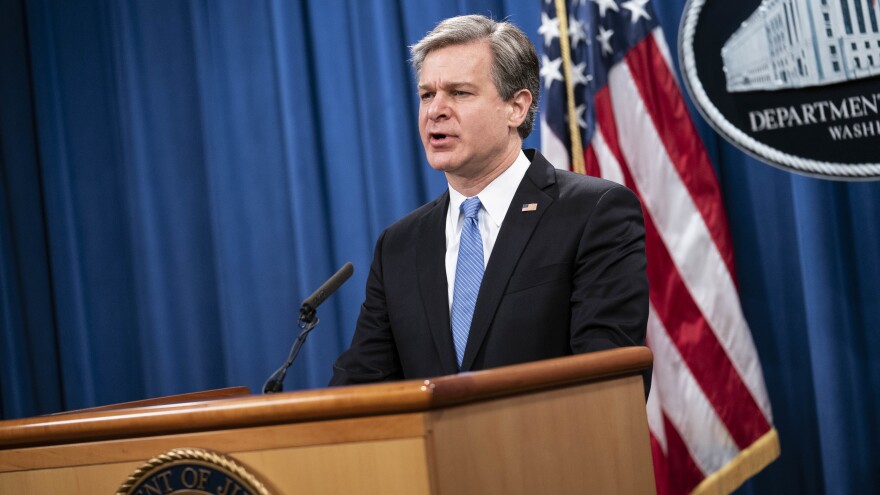The Justice Department has charged two suspected Iranian hackers for allegedly trying to intimidate American voters ahead of the 2020 U.S. election, including by sending threatening emails and spreading false information.
An indictment unsealed Thursday in New York charges Seyyed Kazemi and Sajjad Kashian with several counts including hacking conspiracy, voter intimidation and transmitting interstate threats.
Prosecutors say Kazemi and Kashian were part of a conspiracy that sought to sow discord in the U.S. and undermine faith in the electoral process during the 2020 presidential race.
The covert effort was publicly unmasked in October of last year when then-Director of National Intelligence John Ratcliffe and FBI Director Chris Wray held a news conference to say the authorities were aware of the Iranian actions and that they had been disrupted.
Now, the U.S. government is charging the individuals allegedly behind the effort. The Treasury Department also announced sanctions against Kazemi and Kashian, both of whom are believed to be in Iran, as well as the Iranian company they were working for, Emennet Pasargad.
"The allegations illustrate how foreign disinformation campaigns operate and seek to influence the American public," said Assistant Attorney General Matthew Olsen, who leads the Justice Department's National Security Division. "The department is committed to exposing and disrupting malign foreign influence efforts using all available tools, including criminal charges."
U.S. officials say Kazemi and Kashian are experienced computer hackers who worked for Emennet Pasargad. Justice Department officials say the company has done work for the Iranian government, but prosecutors do not allege the actions in this case were directed by Iran's leaders.
Threatening messages and false information
Prosecutors say that in the late summer and early fall of 2020, Kazemi and Kashian were probing at least 11 state voter websites, including those holding voter registration information.
They managed to get into at least one state's system, identified in court papers only as "State-1," and downloaded information concerning more than 100,000 voters.
The defendants then allegedly used that information to send threatening emails, posing as members of the Proud Boys extremist group, to tens of thousands of registered Democratic voters in the state. The messages threatened physical violence if the recipients didn't vote for then-President Donald Trump.
The alleged conspiracy also targeted Republicans.
Prosecutors say the defendants sent emails and Facebook messages — again falsely posing as Proud Boys — claiming that Democrats were planning to edit mail-in ballots to boost their election chances.
The day after the election, the defendants allegedly tried to use credentials they'd stolen months earlier to access an unnamed media company's network to try to push false claims to the American public. Prosecutors say that effort failed because the media company had previously alerted the FBI of the intrusion and had hardened its system.
Justice Department officials say there's no evidence suggesting the Iranians were able to change a voter's registration or vote.
John Hultquist, the vice president of intelligence analysis at the cybersecurity firm Mandiant, said this case is a "good reminder" that Russia isn't the only adversary that poses a threat to U.S. elections.
"Iran continues to innovate in this area, and they have already carried out some dynamic operations to manipulate audiences in the U.S. and elsewhere," he said. "Nonetheless, many of us were surprised to see such a bold and aggressive action from Iran."
Copyright 2021 NPR. To see more, visit https://www.npr.org.





